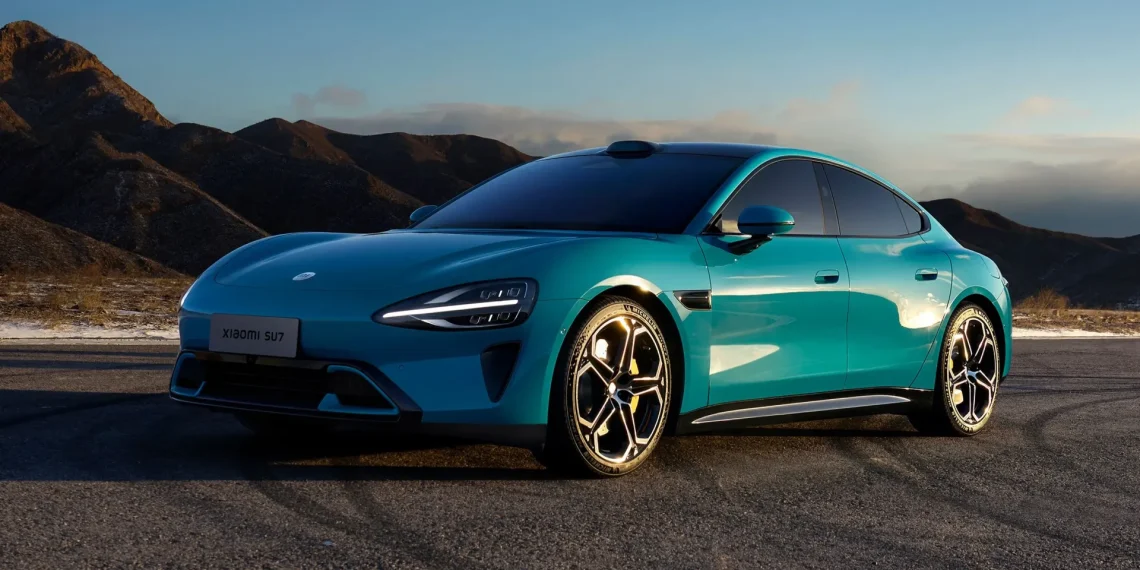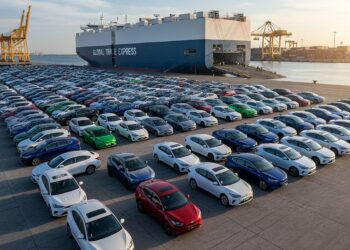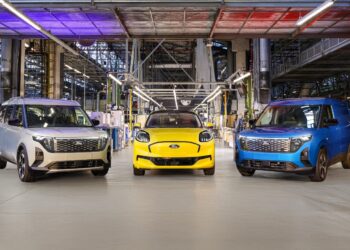Xiaomi Corp., the Chinese tech giant renowned for its wide-ranging product lineup from smartphones to home appliances, is making an audacious push into the electric vehicle (EV) sector, with plans to compete with heavyweights like Tesla Inc. and BYD Co. But the company’s bold strategy comes at a steep cost—Xiaomi is willing to forgo profits in the short term to secure its place among the world’s top automakers over the next two decades.
Chief Financial Officer Alain Lam emphasized that Xiaomi is prioritizing rapid growth over immediate profitability for its five-month-old EV division. In an interview with Bloomberg Television, Lam, a former Credit Suisse banker, indicated that the company’s focus is on scaling up its EV business, echoing the value-for-money philosophy that helped Xiaomi climb to prominence in the global smartphone market.
“We’re more focused on our growth than profitability at this point,” Lam stated, acknowledging that Xiaomi’s EV business will take time to stem its losses. “We do believe scale will bring profit in the future. Right now, I only have one SKU, and it’s far from what we call profitability. We need to continue to invest in this business.”
Xiaomi’s shares surged as much as 8.5% following its announcement of the fastest quarterly revenue growth since 2021, marking a 25% gain since the EV division’s launch in March. This growth has fueled investor optimism, offering early validation for Xiaomi’s billionaire founder Lei Jun, who has pledged to invest $10 billion into the carmaking venture. Lei envisions Xiaomi becoming one of the world’s top five automakers within 15 to 20 years, despite the fierce competition in the EV sector.
However, this ambitious goal comes with significant financial challenges. In the second quarter alone, Xiaomi reported an adjusted net loss of 1.8 billion yuan ($252 million) related to its smart EVs and other new ventures. With just 27,307 vehicles delivered, the company lost roughly 60,000 yuan ($8,400) per car sold, according to Bloomberg calculations.
Lei acknowledged the difficulties of breaking into the automotive industry, asking for patience as Xiaomi navigates its “investment phase.” Meanwhile, President Lu Weibing expressed confidence that EV shipments would accelerate in the coming months, with losses gradually decreasing. The company has already raised its 2024 delivery target to 120,000 vehicles, up from 100,000.
Looking ahead, Xiaomi is expanding its EV lineup to better compete with industry leaders, including plans to introduce an SUV similar to Tesla’s Model Y by 2025. The company is also increasing its production capacity, recently acquiring a site in Beijing to support its growth ambitions.
While Xiaomi’s EV sales are currently limited to China, the company has global aspirations. It showcased its SU7 sedan during the Paris Olympic Games and has hinted at plans to enter the European market, despite potential hurdles like the European Commission’s proposed tariffs on Chinese-made EVs.
“We do have global expansion in mind, although right now we are trying to fulfill all the demand from customers in China,” Lam concluded.
Xiaomi’s foray into the EV market is undoubtedly a high-stakes gamble. But with a proven track record of disrupting industries, the company could well emerge as a formidable player in the global automotive landscape—if it can withstand the financial turbulence along the way.










